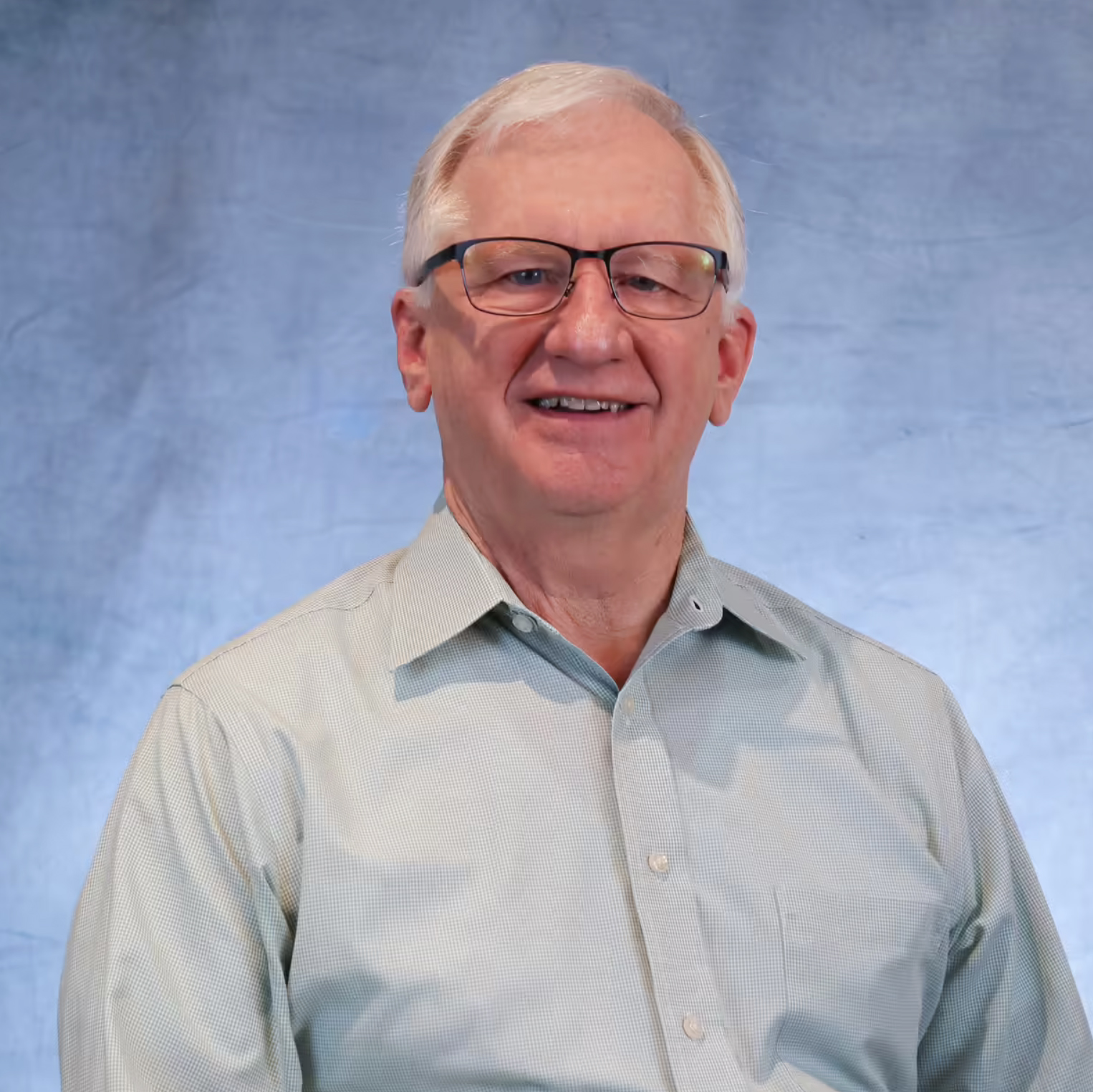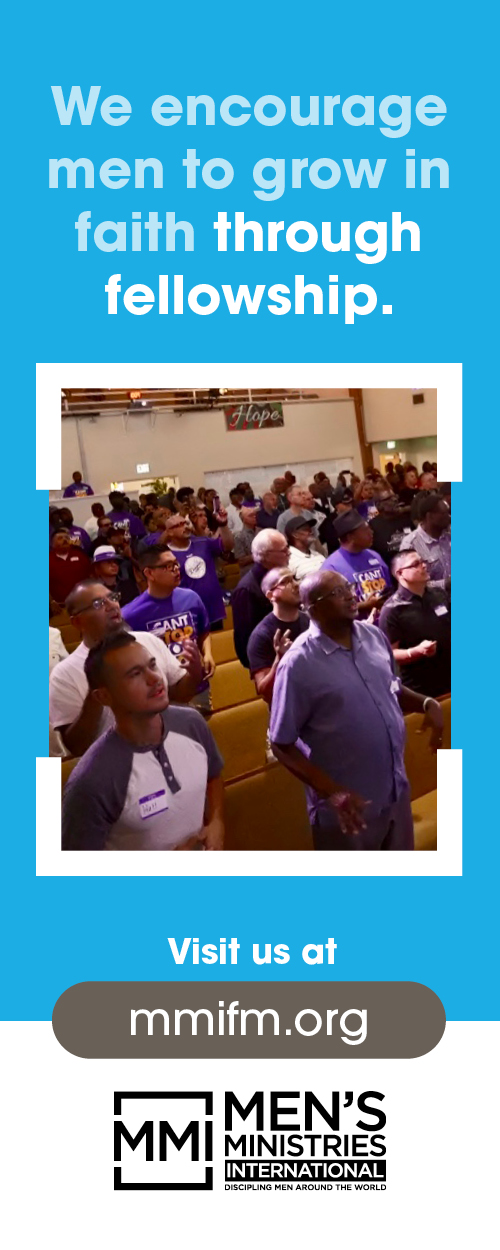
David Harvey
David Harvey is the superintendent of the Acts 12:24 Churches, which he has led since 1999. He previously served as the director of growth ministries for the Free Methodist Church USA and as a pastor in Louisiana and Pennsylvania. He earned a bachelor’s degree from Roberts Wesleyan University and master’s degrees from Asbury Theological Seminary and Bloomsburg University, and he also studied in Temple University’s doctoral program.
By David Harvey
I first met Bruce Bennett in 2010 in Bangkok, Thailand. David Yardy, who was at that time Free Methodist World Missions’ area director for Asia, had invited me to attend a leaders training event at which Bruce was the speaker. I spent a week listening in awe as Bruce laid out a system that had, at that time, led to 15,000 churches being planted. Today that number has ballooned to 75,000 churches planted.
Listening to Bruce was for me the culmination of a lifelong pursuit of trying to understand biblical multiplication. For years I had been teaching the leaders in my conference that the Bible teaches that the kingdom is supposed to advance rapidly through multiplication. However, I had never seen it happen or even heard of it happening in our generation until that meeting in Bangkok.
_
“I was determined to go home and start one of these church planting movements.”
_m
I discovered that there are many Bruce Bennetts in the world, people who have led multiplication movements in which thousands of churches are planted. These movements are called church planting movements (CPMs) or disciple making movements (DMMs). In fact, Mission Frontiers magazine, which tracks these movements, says the current number of these known kingdom movements around the world is 1,967.
I was determined to go home and start one of these church planting movements. But I quickly discovered a problem — these multiplication movements are happening everywhere in the world except in Western countries. Many people have tried to replicate these movements in the U.S. and Western Europe without success.
Together with the people around me in my office and leaders of our conference, we set out to discover how we could start a multiplication movement in our region of the country. The Acts 12:24 Churches committed to spend $1 million to discover how to start a multiplication movement. We didn’t have $1 million at that time, but we have spent almost $1 million in trying to start this movement. It took us 10 years to figure out how to “westernize” the multiplication movement strategies, but, in 2020, we launched the Church Development Network. We set a beginning goal of starting 1,000 churches. So far, we are at almost 200 churches planted.
The Free Methodist bishops have called the church to become a “Spirit-fueled movement.” This is the correct path to creating a thriving, fruitful church. The difficulty is that to become a Spirit-fueled movement requires that we abandon everything else and make this the singular goal of everything we do. Few people or organizations in the West are willing to pay the price that is required to achieve this. This article will tell some of the things we have learned about starting a church planting movement in Western culture.
Five Reasons Why Church Planting Movements Don’t Work in the West
- Prayerlessness
All multiplication movements prioritize prayer. The time spent in prayer is measured in hours, not minutes. In their book, “The Kingdom Unleashed,” Jerry Trousdale and Glenn Sunshine describe the prayer plan for a church planting movement called Mission for All:
Annually: Twenty-one days of fasting (two meals) and prayer in all churches starting on Jan. 10.
Monthly: One Friday each month for a half (or whole) night of prayer.
Weekly: Every Wednesday or Thursday, fasting (two meals) and breaking fast with the church gathered for a Discovery Bible Group and intercessory prayer.
Corporate intercession: The experience is of a unified chorus of passionate intercession, with a clear sense of worship and petition, even while learning how to pray for major kingdom outcomes. These nights have the feel of a celebration of God’s faithfulness and provision more than anything else.
Daily: Ninety-minute prayer meetings at 40 prayer centers in five countries.
Weekdays: All ministry offices and schools stop at noon for thirty minutes of midday intercession.
Last day of the month: All Christ-followers are encouraged to come out of their house and engage their neighbors with prayer for God to meet their felt needs.
Last three days of December: Thanksgiving prayers and fasting.
- Expert Culture
In “1,000 Churches: How Past Movements Did It — And How Your Church Can, Too,” Ed Stetzer and Daniel Im identify the expert culture of the West as one of the primary hindrances to church planting movements. The effect of this expert culture is insidious in the church. It works against our doctrine of the priesthood of all believers and causes us to trust Western training more than the call of God and the empowerment of the Holy Spirit in people’s lives. I remember Bruce Bennett saying to me, “The one thing we don’t need in Africa is Westerners coming here and doing leadership training.” He was not opposed to training. In fact, the driver of his movement was that he spent 40 months training each pastor, but only after they had been proven called and fruitful.
- A Therapeutic Gospel as Opposed to a Transcendent Truth
These ideas come from the work of Philip Reiff who, in a trilogy of books, describes the death process of the Western culture as it attempts to reorganize itself without a sacred center — without any source of an outside authority or transcendent truth. This is not an argument against therapy, but an argument that truth is necessary for human thriving. We live in an age, he says, when people are trying to do away with gods altogether. When a culture abandons transcendent truth, we are left with only our own desires as the moral authority for life. The goal of a therapeutic gospel is to help people feel better about things rather than calling for a fundamental change of direction in the human heart. Movements require a transcendent God and a people deeply committed to obeying His truth.
- An Incomplete Missiology
God’s first command to humans was to “be fruitful and multiply” (Genesis 1:28 NKJV). This simple sentence lays out God’s plan for the earth. What God wants on the earth is a people who belong to Him and whose life’s work it is to multiply the number of those on earth who belong to Him and bring glory to Him. This is the divine enterprise. From the promise to Abraham to bless all generations through him, to the parables of Jesus, the Bible seeks to teach us that multiplication of generations of His people is the work of God on earth. People in non-Western cultures understand these agrarian concepts like the reproduction of seeds that multiply more readily than people in Western cultures. The result is that nearly everything about Western missiology leads us toward kingdom addition while everything about biblical missiology leads us toward multiplication. To have a movement requires that we view our life’s work as not just adding to the kingdom but creating generations of believers who know how to multiply. We want to sow seed that produces thirty, sixty or one hundredfold.
- Lack of Moral Authority to Speak into Culture
We have seen much research lately that shows that Christian’s lives are strikingly similar to those who do not profess to be Christian. From the use of pornography to the rate of divorce, being a Christian does not seem to make much of a difference. The church struggles not because the gospel is impotent, but because our witness is increasingly compromised by our own behaviors.
Five Things the Church Can Do to Become a Movement
- Pray for workers.
The single most disobeyed command of Christ to the church is the command to “ask the Lord of the Harvest to send out workers into his harvest field” (Matthew 9:38). The Church Development Network has been working at starting what they call a 10-2 prayer movement. Based on Luke 10:2, they ask everyone to set their phone alarm to go off at 10:02 a.m. and to stop and pray for workers for the harvest. God is honoring this simple act of obedience. Both individuals and churches are being revitalized. All Spirit-fueled movements take prayer seriously.
- Focus on lostness.
Churches that focus on lostness accomplish more for the kingdom than churches that focus on growth. Westerners are consumed with creating strategies and systems. All organizations require strategies and systems, but these can quickly insulate Christians from feeling the impact of lostness on the lives of people around them. Movements happen when people are more motivated by lostness than by building a large church or organization. Movements are fueled by the exuberance of new Christians who have been found by God and who want their family, friends and community to have the experience of coming home to the loving arms of God.
_
“The church should be deeply invested in making testimony a priority in the lives of Christians.”
_m
- Give testimony continually.
Faith comes by hearing. This simple statement from Scripture is one of the keys to movements. The New Testament describes three ways that Christians communicated their faith: proclamation, telling good news, and bearing witness. Each of these ways involve some form of testimony. Testimony is simply pointing to the gospel as true because you have experienced it. “Once I was blind, but now I see” is a simple, powerful witness of testimony. Movements happen as Christians learn to speak naturally and continually about God, about what He has done for them and what He can do for their hearers. As Christians speak, they develop repertoires so that their testimony becomes increasingly natural and powerful. The church should be deeply invested in making testimony a priority in the lives of Christians.
- Deploy rapidly — practice the priesthood of all believers.
If you want to start a movement, it requires that you deploy as many people as possible into the harvest fields as quickly as possible. People who are called by God to start a church should be shown what to do by an overseer and sent immediately. We believe that all Christians are part of the kingdom of priests who have access to God and a right to share God with others. When Peter and John began their ministry, the people were amazed at their words because they were ordinary, unschooled men. What made them effective was that they had been with Jesus. Bruce Bennett sent everyone in his training out to plant a church. The only requirement was that they gave witness to having been called by God to plant. If they succeeded, he trained them to be pastors. He told me one time that when he started, he only invested in the best leaders, but they had over 50% failure rate in planting churches. Then he started just investing in people who said they were called, and that raised the success rate to 95%.
_
“This fullness of His Spirit is both a gift and is learned.”
_m
- Obey Jesus continuously — live in His manifest presence
Jesus is omnipresent — He is everywhere and with everybody. But Jesus tells us that He and the Father only make their home in the hearts of those who love Him and obey Him (John 14:23). There is a life of holy obedience in which we become continuously aware of God’s presence in our heart. The presence is what enables us to obey Him and live for His glory. This fullness of His Spirit is both a gift and is learned. Brother Lawrence told us that we should “practice the presence of God” by learning to converse with Him at all times.
And Steve Smith, in his book, “Spirit Walk,” described this life in this Spirit with the acronym SWAP:
Surrender your life to the Word and will of God
Wait on God in Prayer
Avoid sin
Pursue the promptings of the Holy Spirit
Movements are made up of people who obey Jesus fully because they live in the presence of the Holy Spirit.
The Church Development Network describes what it is trying to accomplish as “the relentless pursuit of obedient disciples.” The world is waiting for Christians who can live this way. It is the only path to becoming a movement. There are tens of thousands of people all around us who are ready to give their lives to Christ. The harvest is plentiful, but the workers are few. May the Lord of the Harvest raise up tens of thousands of more workers to work in His harvest fields (Matthew 9:38).
+

David Harvey
David Harvey is the superintendent of the Acts 12:24 Churches, which he has led since 1999. He previously served as the director of growth ministries for the Free Methodist Church USA and as a pastor in Louisiana and Pennsylvania. He earned a bachelor’s degree from Roberts Wesleyan University and master’s degrees from Asbury Theological Seminary and Bloomsburg University, and he also studied in Temple University’s doctoral program.









